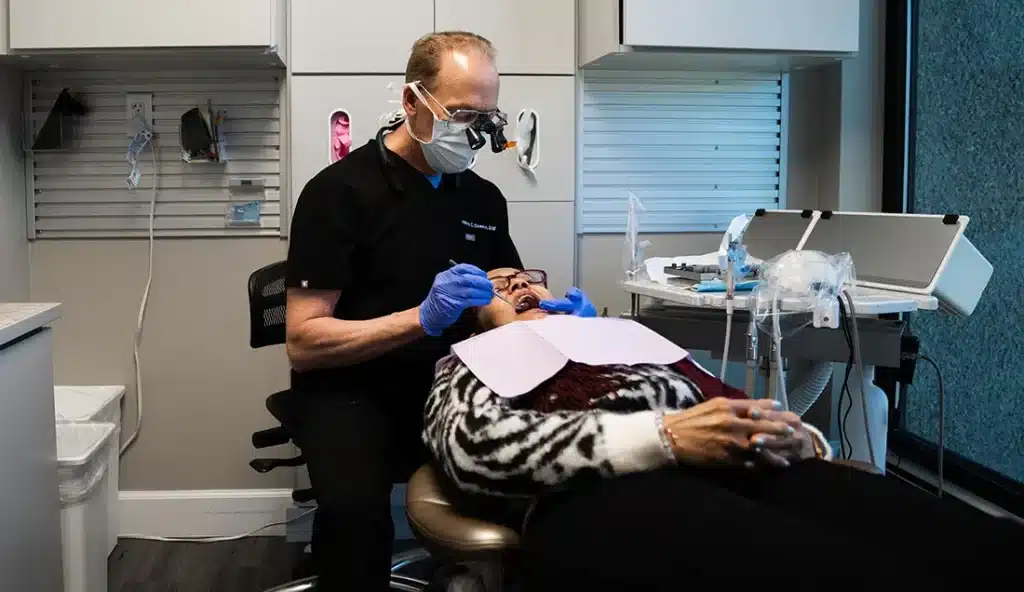Usual Inquiries Concerning Oral Veneers Addressed
Oral veneers have become an increasingly desired alternative for those looking to improve their smiles, yet many individuals continue to be unclear concerning numerous aspects of their use. As we check out these typical queries, it ends up being crucial to think about not just the benefits however also the effects of opting for oral veneers in quest of a much more positive look.
What Are Oral Veneers?
Dental veneers are thin, customized coverings crafted from porcelain or composite resin that are created to cover the front surface area of teeth. These oral prosthetics serve both visual and practical objectives, providing an option for numerous oral blemishes, consisting of staining, chips, spaces, and misalignment. By sticking to the teeth, veneers can significantly improve the general appearance of a smile, producing a much more eye-catching and consistent appearance.
Porcelain veneers are particularly preferred for their natural translucency and discolor resistance, making them a perfect option for people seeking long-lasting outcomes. In contrast, composite resin veneers are normally less costly and can be applied in a solitary see, however they might not use the exact same sturdiness as porcelain options.
The decision to select dental veneers commonly stems from a wish for visual improvement, but individuals ought to likewise take into consideration factors such as the long life of the material, upkeep needs, and the potential need for tooth decrease (Low Cost Veneers). Eventually, oral veneers represent a functional and reliable option for achieving a glowing smile, providing to private cosmetic needs while promoting self-confidence and self-confidence
Just How Are Veneers Applied?
The application procedure for veneers requires mindful planning and precision to guarantee ideal results. The treatment normally begins with a detailed appointment, where the dental expert reviews the patient's dental wellness, reviews desired outcomes, and figures out the ideal kind of veneers, whether porcelain or composite material.
When the treatment strategy is developed, the dental expert prepares the teeth by getting rid of a thin layer of enamel, generally regarding 0.5 mm to 1 mm, to accommodate the veneer. This step is vital as it ensures a proper fit and avoids the veneers from showing up bulky - Veneers. After prep work, impacts of the teeth are required to create personalized veneers that match the patient's distinct dental structure and aesthetic choices
While the permanent veneers are being made in a dental research laboratory, short-lived veneers may be placed to secure the prepared teeth. Once the long-term veneers are ready, the dentist will carefully bond them to the teeth making use of a solid dental adhesive. Last adjustments are made to make sure appropriate placement and bite, followed by brightening for an all-natural look. The process finishes in a follow-up appointment to monitor the veneers' fit and the individual's complete satisfaction with their new smile.
What Are the Advantages?

In addition, veneers are known for their sturdiness and resistance to tarnishing compared to all-natural teeth. Made from high-grade materials such as porcelain or composite material, they can keep their appearance for years with proper care. This longevity makes them a practical investment in one's oral appearance.
Along with aesthetic enhancements, veneers can also add to boosted dental health and wellness. By covering harmed or damaged teeth, they can offer additional support and protection, assisting to prevent further degeneration or degeneration. This protective facet can lower the requirement for a lot more considerable dental treatments in the future.

How Much Time Do They Last?
With proper treatment and upkeep, dental veneers can last anywhere from 10 to 15 years, making them a lasting option for enhancing one's smile. The durability of veneers greatly depends upon the product made use of, the high quality of the first placement, and the individual's adherence to dental health methods.
Porcelain veneers are recognized for their sturdiness and resistance to staining, typically lasting closer to the 15-year mark when looked after suitably. Composite veneers, while more cost effective, may need substitute faster, often within 5 to 10 years because of their susceptibility to wear and discoloration.

Furthermore, using a mouthguard throughout sports or nighttime can give added defense. Eventually, while veneers supply a significant visual improvement, their long life is significantly influenced by the dedication to proper oral care and routine consultations with a dental expert.
Exist Any Type Of Dangers?
Thinking about the transformative effects of oral veneers, it's vital to recognize the potential risks connected with their application. While veneers can enhance the appearance of teeth, the procedure entails the removal of a thin layer of enamel, which can boost tooth sensitivity and vulnerability to decay.
One considerable risk is the possibility of inappropriate positioning or suitable, resulting in pain, bite imbalance, or even damage to the underlying tooth framework. Additionally, if the veneers are not preserved correctly, they can come to be tarnished or broken in time, requiring replacement.
Patients might also experience allergies to the materials made use of in the veneers, especially if they have level of sensitivities to particular dental compounds. Furthermore, while veneers are sturdy, they are webpage not indestructible; extreme force from clenching or grinding can result in fractures.
It is important for clients to seek advice from with a certified dental expert to examine their private dangers and to adhere to aftercare instructions vigilantly. By comprehending these threats, people can make educated decisions regarding their dental veneer therapy and make certain the durability and success of their enhancements.
Conclusion
In summary, dental veneers stand for a beneficial cosmetic option for improving smiles, with factors to consider concerning their application, benefits, longevity, and linked dangers. Eventually, informed decision-making regarding oral veneers can lead to satisfying aesthetic outcomes and enhanced oral wellness.
Oral veneers are slim, customized shells crafted from porcelain or composite resin that are developed to cover the front surface area of teeth. After preparation, impacts of the teeth are taken to produce customized veneers that match the person's unique oral framework and aesthetic choices.
While the irreversible veneers are being produced in a dental laboratory, short-term veneers might be placed to secure the prepared teeth. Once the long-term veneers are all set, the dentist will thoroughly bond them to the teeth making use of a solid dental adhesive. Eventually, informed decision-making concerning click oral veneers can lead to satisfactory aesthetic end results and improved dental health.